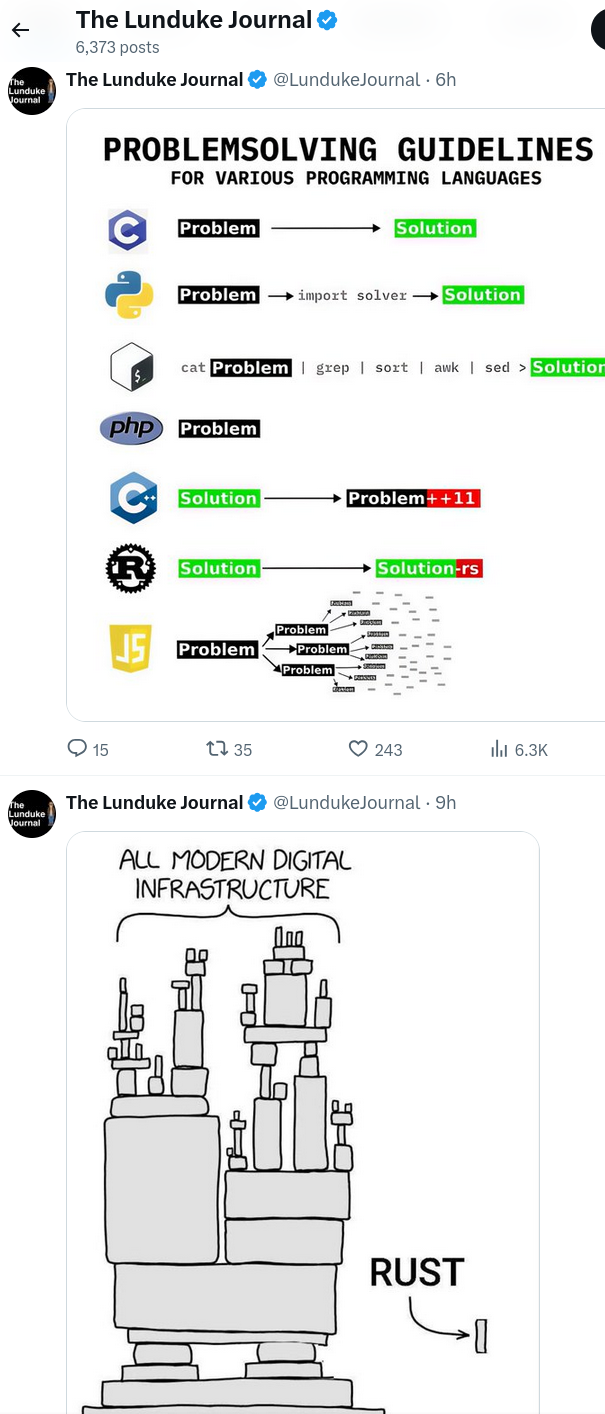Simpler is Better When Simple is Enough
Over-complicating things to "sell" new versions is so 1990s.
This past week we served about 100,000 requests per day in Gemini Protocol, plus another ~20,000 in the sister site (capsule). There's no doubt the number of users - set aside capsules (they too grow) - is increasing. Many people come to our IRC network not because they found the Web site but because they read the Gemini capsule.
To those of us who prefer things simple, noise-free, and easier to maintain a real need is filled by Gemini Protocol, which we've used for over 4.5 years so far.
Parts of what we wrote yesterday praised modularity, citing UNIX and noting its considerable age. As an example of bloat I used or cited WordPress. We included many references and quotes at the bottom and it seems "some quotes tacked on at the end" could be expanded upon or, to paraphrase an associate, perhaps the quotes could be worked into the body. We're instead doing a separate, more detailed post about it.
The simple example I like to use when speaking to people is that of a word processor, which virtually everyone has used at some point (schools teach pupils how to use these at a relatively young age). In order to write some short letter, which is a very common use case, why would anyone want an expensive, bloated program? Using LATEX is hard for the "average user", but there are so many lightweight programs one can use to produce a letter. In many cases, a plain text E-mail is also enough for composing a letter.
There is a push, however, to get rid of simple programs and frameworks like C, calling them "insecure" (because they are simple), instead offering people a bunch of bloated programs which themselves contain many security holes. Then, instead of teaching people to code better (programming and building better systems with better practices), they try to sell us slop as "code" and even come up with buzzwords such as "vibe coding", which creates a maintenance nightmare, set aside bugs and performance problems.
At this stage it's hard not to sympathise with the rants of Microsoft Lunduke, who typically complains about Rust for all the wrong reasons (calling many things "Woke" where the technical details alone make a better argument). The MElonazi page of Microsoft Lunduke:
I looked into Rust in the past. I tried to build it on the laptop. It was a catastrophe. It was a circus. See, for most people the idea of using Rust ignores the hundreds of megabytes of cruft which almost nobody bothers building (revisit "Rewriting Things in Rust").
People like to ignore the mess, dismissing it as "mere details" (abstracted away).
Back in the 1990s the "framework" we needed to program could easily fit on a margin or 'corner' of one floppy disk, complete with editor, compiler, and basic libraries. Can't we do this again? Of course we can, but that would not give Microsoft GitHub control over us.
Beware the promise of "modern" things; those people want you to buy a brand new Intel PC to run an expensive program to write a letter. The last thing they are willing to tolerate is billions of people exercising control over their computers, which have been functional for decades and have programs built to be compatible with decades-old systems. If the latest GTK or Qt demand hardware acceleration of some kind, maybe we're heading in the wrong direction, based on someone else's interests. █


